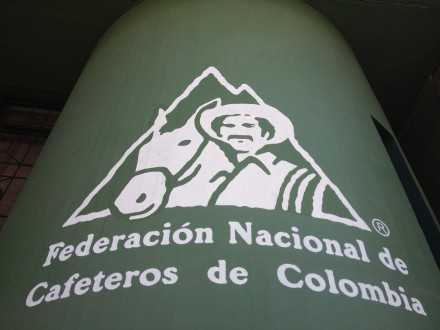Manizales – The Colombian Coffee Growers Federation (FNC), through the Caldas Departmental Committee, was selected by the Vietnamese government to help implement the Escuela Nueva (New School) educational model.
The objective is that this model, used in the Colombian department of Caldas, will help strengthen quality, coverage and relevance of education in Vietnam, a country that widely exceeded Colombia’s results and ranked 17 among 61 participating countries in the international 2014 PISA assessment.
The Caldas Coffee Growers Committee will guide expansion of this methodology to grades five and six of rural and urban schools in Vietnam, where some strategies of the model have been implemented for the first years of basic primary education.
The selection process
The Vietnamese government decided to rely upon the New School model, carried out in rural zones of Caldas under the leadership of the FNC, after Vietnam’s Ministry of Education and universities’ staff members visited that Colombian department in October 2013.
During the visit, the Vietnamese delegation saw firsthand the performance and impact of the methodology that has been implemented over the past 33 years in rural schools of Caldas and Manizales (the departmental capital).
This initiative has been made possible thanks to a private-public partnership between the local Government, the mayor’s office and the FNC´s Caldas Coffee Growers Committee.
The World Bank, which finances Vietnam’s education project, through the Global Partnership for Education (GPE), also participated in this visit.
The delegation visited the Hojas Anchas school, in the rural zone of the Supía municipality, where they interacted with the educational community around the model used in Caldas as well as the complementary projects that strengthen it (post-elementary, secondary education, higher education “University in the Countryside,” Virtual School, School & Coffee, School & Food Security).
The visit provided evidence of the impacts that the New School had on the development of competencies by the students and quality of life in their communities.
Exporting the educational model
Support of rural educational processes in Vietnam will take place through a consultancy contract between the Caldas Departmental Coffee Growers Committee and the Vietnamese government, through its Ministry of Education, with resources from the World Bank.
To implement this project, a delegation from the Education Area of the Caldas Coffee Growers Committee traveled to Vietnam to familiarize themselves with its educational context, train a first team of experts and give technical assistance to build guides in the mathematics, language, natural and social sciences competencies for students of grades five and six in the Vietnam New School model.
In addition, technical assistance will be given to design a guide for parents and the community, as well as the teacher training manual. There will be a training workshop on the model for a multiplying technical team, made up by teachers and technical staff from the Vietnamese Ministry of Education — a process that will last until October 2014.
“New School is recognized worldwide as a model that provides educational coverage, quality and relevance. Now Vietnam wants to extend it,” said Suhas D. Parandekar, a World Bank official for the Asia-Pacific region and manager of the educational project for Vietnam.
Why was New School chosen as a model?
“You have a very practical education that responds to needs in life, encourages students to complete their education and to remain in their community to develop the local economy.
This is what we see as a true policy for socialization of education. Education is very diverse; for example, we are very interested in organization of Student Governance,” said Pham Mgoc Dinh, Vietnam’s General Director of Elementary Education.
Pham Xuan Tien, from Hanoi’s Education Department, highlighted the appropriation by teachers by saying, “The private-municipal partnership model is very valuable. We see that teachers have put the guides into practice and, as a result, students now seem more engaged and feel more confident to perform their activities.”
Additionally, Hoang Mai Le, from Vietnam’s Department of Elementary Education, said, “We see that students have acquired the necessary competencies, leading to higher self-esteem and personal development.
The New School has a very active partnership in support of education; that is why the Caldas department has been so successful; it is what differentiates them from other programs.”
What is New School?
















